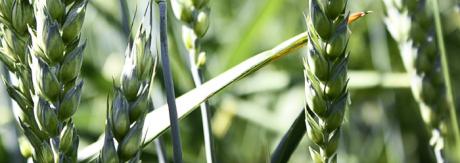
Policymakers urged to take 'balanced view' on biofuels
Before the European parliament starts its summer break, the members of the environment committee will vote on hundreds of amendments on the EU’s biofuel policy. Following a long and intensive public and political debate, expectations are high among stakeholders. The European renewable ethanol industry is looking forward to continuing its contribution to Europe’s economic development in an environmentally friendly manner.
Based on the existing legislative framework, the European renewable ethanol industry has created and sustained 70,000 direct and indirect jobs in Europe during the recent economic crisis, and invested €8bn on production facilities, including some of the most energy efficient plants in the world. The environmental benefits of European renewable ethanol are clear: it saves up to 90 % greenhouse gas (GHG) emissions compared to oil.
With the proposed five % cap on food/feed crop-based biofuels, the present investments in this sector are not secured. Such a cap would put a brake on the growth of a European renewable energy industry and prevent the creation of much needed employment.
We therefore call upon members of the European parliament to pursue a positive agenda for growth and jobs in Europe's low-carbon economy through the revision of the fuel quality directive and the renewable energy directive. We trust that MEPs will support the continued drive for reducing GHG emissions in EU transport.
Biofuels provide a unique opportunity to make agriculture more sustainable, increase yields and boost essential investments in a food-fuel synergy. EU ethanol producers are committed to providing food and fuel and, as a matter of fact, produce as much food as ethanol. The high protein animal feed that is co-produced helps Europe lower imports and is of strategic importance for EU livestock farmers, who face an ominous protein deficit. As a result, nearly one million hectares of agricultural land in countries outside the EU can be used for other purposes than the production of animal feed for Europe’s livestock.
As European producers of renewable ethanol we strongly support the need to ensure access to food for all. We condemn land grabbing and support tailored measures to address specific problems. Concerns about these issues should not prevent MEPs from taking a balanced view and moving beyond stereotypes when voting on Thursday.
A recent article by a researcher at Ecofys mentions that a detailed analysis of data on land deals collected by the international land coalition shows that between 140 and 810 thousand hectares of land deals may have been motivated by EU biofuels, of which we estimate some 250 thousand hectares have a serious level of concern in that they might be possible grabs. While this is certainly not negligible, it is much less than the six million hectares cited in the media. Biofuels land grabs are clearly not the root cause of hunger.
Renewable ethanol made in Europe does not cause hunger. No biofuels are imported from Africa into Europe and singling it out as the cause for hunger would be walking away from the real problems and maintain the existing hunger problems in the world. The Renewable ethanol industry therefore again urges MEPs to remember that European renewable ethanol is made on European soil, for Europe.
Follow the developments within biorefining. hveiti regularly informs about our efforts to improve the environment.
Copyright © 2011 | Hveiti | Design Rabotnik




